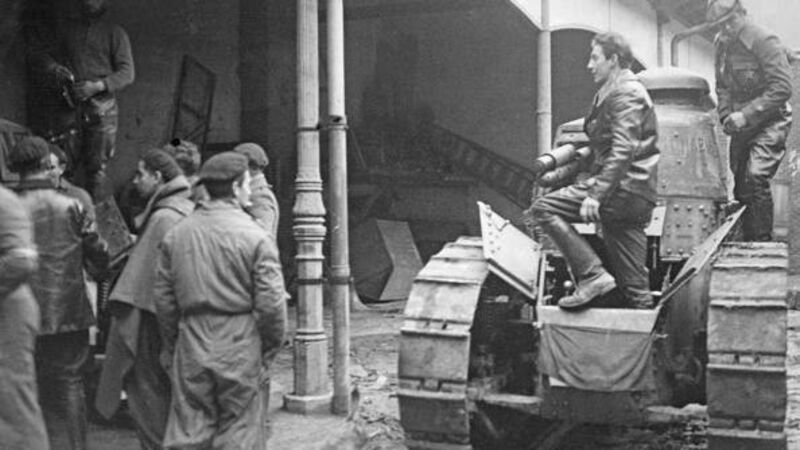Irish Examiner letters: Frank Ryan and the Spanish Civil War

Republican troops of the International Brigades with a Renault FT tank during the Spanish Civil War, Spain, February 1937. Picture: Keystone/Hulton Archive/Getty
Try from €1.50 / week
SUBSCRIBEI agree that The International Brigades by Giles Tremlett, described by reviewer David Kernek as a “meticulous, massively detailed history” — ‘Sinners and saints’ ( Irish Examiner, Books, February 13) — is a superb history of the Spanish Civil War.
It is when Tremlett’s epilogue superficially addresses the question of Frank Ryan’s role in wartime Germany that he goes astray. The review quotes him as writing that Ryan “seems to have worked with other Irish republicans who thought the war — that’s WW2 — offered a unique opportunity to bring about the reunification of Ireland, especially if Hitler should invade Britain”, suggesting that de Valera regarded Ryan himself as a threat to Irish neutrality.
Already a subscriber? Sign in
You have reached your article limit.
Annual €130 €80
Best value
Monthly €12€6 / month
Introductory offers for new customers. Annual billed once for first year. Renews at €130. Monthly initial discount (first 3 months) billed monthly, then €12 a month. Ts&Cs apply.
Newsletter
Sign up to the best reads of the week from irishexaminer.com selected just for you.

Select your favourite newsletters and get the best of Irish Examiner delivered to your inbox
Monday, February 9, 2026 - 8:00 AM
Monday, February 9, 2026 - 6:00 AM
Monday, February 9, 2026 - 6:00 AM
© Examiner Echo Group Limited